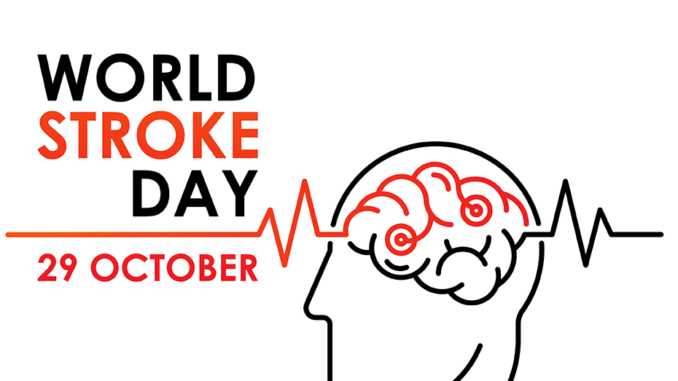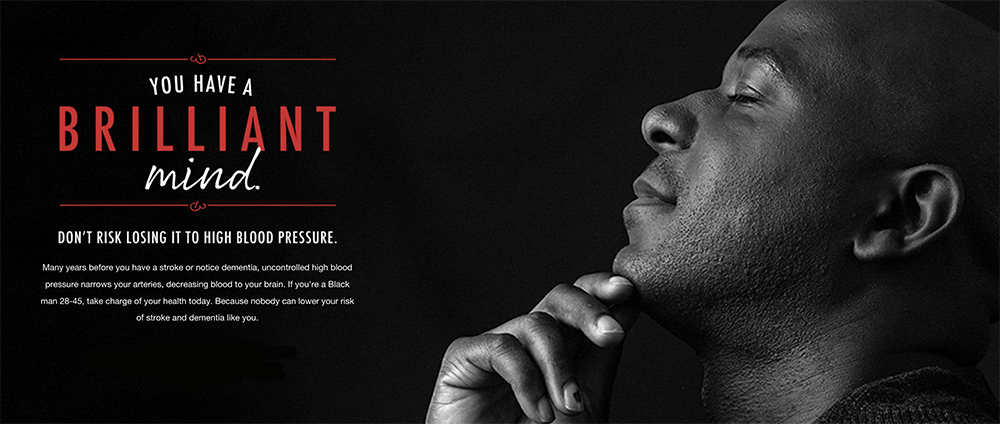
Heart & Soul recently connected with Dr. Richard Benson, director of the Office of Global Health and Health Disparities at the National Institute of Neurological Disorders and Stroke, part of the U.S. National Institutes of Health, to discuss how high blood pressure can lead to stroke and dementia and how everyone can better manage their risk, particularly around World Stroke Day (October 29).

What is high blood pressure and why is it important?
High blood pressure, also called hypertension, is blood pressure that is consistently higher than normal, or 130 or higher/80 or higher mm HG.
High blood pressure is often called the “silent killer,” because most of the time there are no obvious symptoms.
How is high blood pressure connected to stroke?
Over time, high blood pressure weakens the brain’s blood vessels and may bring on a stroke.
When your blood pressure is high you are 4 times more likely to die from a stroke.
And the risk of having a first stroke is nearly twice as high for Black people as for White people. Black people also have the highest rate of death due to stroke, according to the Centers for Disease Control and Prevention.
World Stroke Day, October 29, is a key date when we raise awareness about stroke and how people at risk can take steps to reduce their chances of having a stroke.
What is dementia and how can high blood pressure lead to dementia?
Most of us know someone — a friend, a family member — living with dementia. Many people think of it as a single disease with the main symptom being memory loss. However, a number of different diseases can result in dementia. Symptoms include memory loss, as well as changes in mental abilities such as reasoning and judgment, which can make it difficult to perform once routine daily activities. Some people with dementia can experience changes in personality while others may become agitated, delusional, or have slowed thinking.
Research suggests that some of the damage that occurs in the brains of people with dementia and uncontrolled high blood pressure may be preventable. Chronic uncontrolled high blood pressure can lead to irreversible damage to the brain, cognitive impairment, dementia or stroke.
How can people manage their risks?
We know people need to take charge of their health today, to help prevent stroke and dementia tomorrow.
There are many effective lifestyle changes you can make that will reduce your chance of all types of stroke, heart disease, and likely dementia later in life. These include quitting smoking if you smoke. It’s also important to eat healthy and exercise regularly. And, know your blood pressure numbers. While high blood pressure cannot be cured, it can be managed effectively through lifestyle changes and, when needed, medication.
Additionally, the National Institute of Neurological Disorders and Stroke has launched a public health campaign, Mind Your Risks, that educates Black men with or at risk for high blood pressure about the importance of taking charge of their health. Controlling high blood pressure, particularly between the ages of 28 and 45, can help reduce the risk of having a stroke and developing dementia later in life.
Learn more with these resources:
- New Webinar: NINDS teamed up with Morehouse College to host a webinar to discuss the link between high blood pressure, stroke, and dementia and ways to prevent health problems later in life. View a recording of the webinar to learn more from Dr. Benson and hear stories from Morehouse alumni.
- Mind Your Risks website: mindyourrisks.nih.gov








